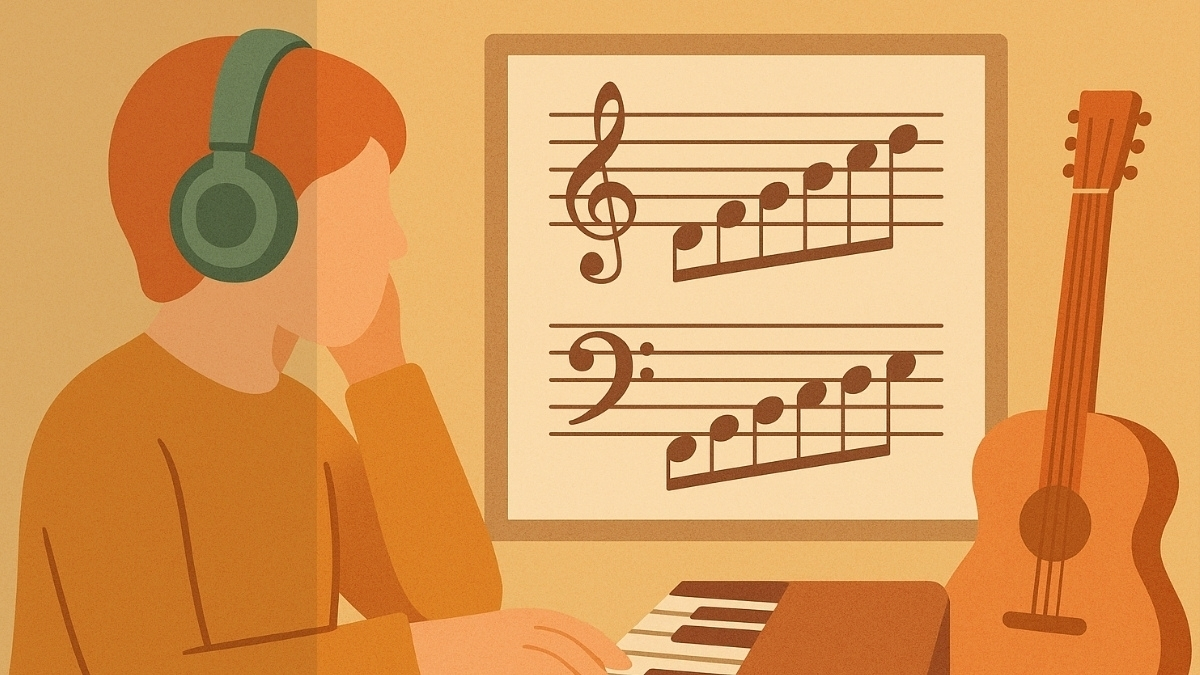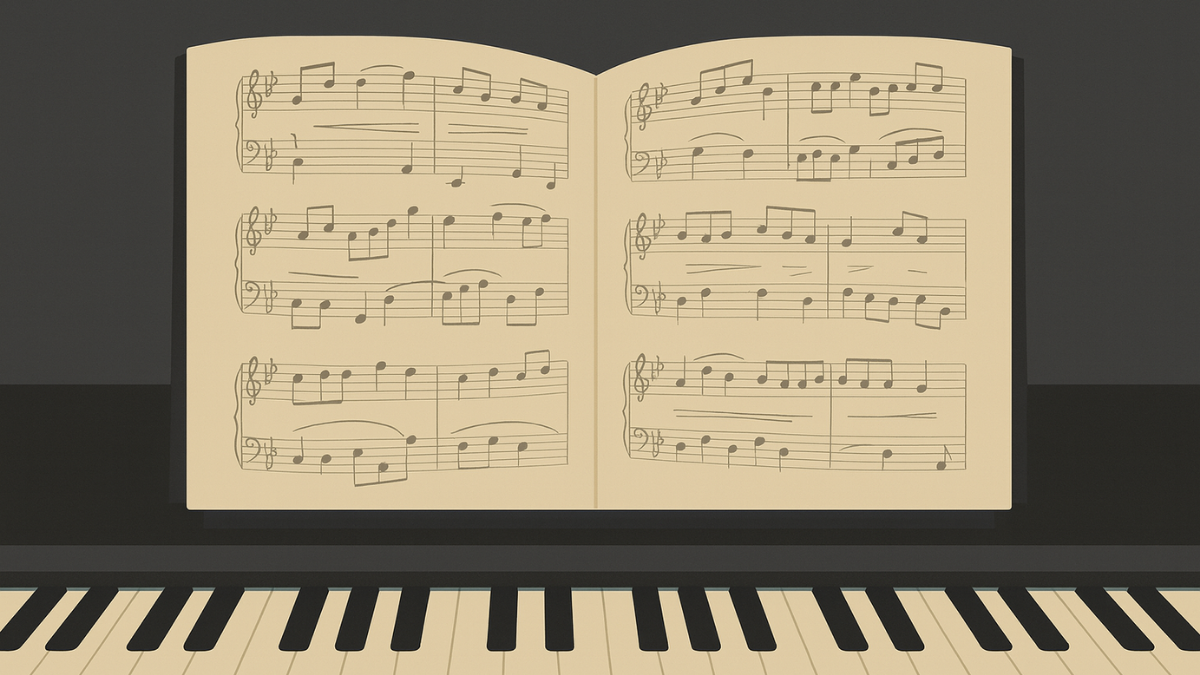How to Find and Expand Your Vocal Range (Without Breaking Your Voice)

Every frustrated singer I’ve ever met (including past-me) makes the same mistake: we confuse range with tessitura. Range is the total span from your lowest usable note to your highest. Tessitura is where your voice sounds good for the longest with the least fatigue. It’s the neighborhood you actually live in.
Most problems begin when we try to perform from the extremes (edges of the range) rather than the neighborhood (tessitura). It’s like sprinting a marathon because you saw a fast person on YouTube. You can force it for a moment, but force isn’t a skill; it’s a receipt you’ll pay later with tension, inconsistency, and doubt.
When you center your singing inside tessitura, three things improve almost immediately:
- Tone aligns. The sound stops wobbling between pressed and breathy and starts ringing.
- Strain drops. You’re no longer bargaining with your throat for every phrase.
- Confidence rises. You can focus on expression instead of survival.
And here’s the good news: Tessitura isn’t a prison. It expands as your coordination improves. But expansion is a side effect of precision, not pressure.
Measure Once, Sing Twice (How To Find Your Vocal Range?)
Before you buy another course or practice “harder,” anchor your training in reality. The fastest path is a quick, objective test: sing your lowest comfortable note and your highest comfortable note for a few seconds each, then mark the results. ToneGym’s Vocal Range Test makes this painless, and it adds a bonus: it estimates your voice type and expresses your span in semitones, so you can see progress over time.
Do it like this:
- Keep the volume moderate. You’re not auditioning for a stadium.
- Choose vowels that feel easy (AH or OO often behave well).
- Hold each note for roughly three seconds,steady pitch, steady air.
- Save the numbers and the date.
If you’ve already taken a range test, great. screenshot your last result and set a 14 day retest date. We’ll come back to why that interval matters.
A Word on Labels (Bass, Baritone, Tenor, Alto, Mezzo, Soprano)
Voice types are useful labels, not destiny. They tell you about typical comfort zones and common problem areas, but they don’t decide your art.
A dark-colored tenor isn’t a baritone just because he likes low notes; an agile alto isn’t a soprano because she can ping a high C once a week. Train the voice you have. Use the label as a starting point, not a finish line.
The Quiet Skill No One Brags About (But Everyone Needs)
If you remember only one sentence from this article, make it this: range expands when coordination improves; coordination improves when your ear and voice agree. That agreement, between the pitch you imagine and the sound you produce, is the unbeaten path to reliable highs and resonant lows.
Most singers chase range by pushing. The body hears “louder” as “higher” and “heavier” as “lower,” and we end up wrestling our larynx muscle like it owes us money. It’s loud, it’s tiring, and it teaches nothing. The alternative is quieter and far more effective: teach your nervous system precise targets, then let your voice learn how to arrive there with less friction.
Two small practices create that agreement, Pitch centering, which is learning to land on the true center of the note rather than its edges and Interval awareness to understanding the distance between notes so leaps become measured travel, not emotional jumps.
On ToneGym, those two skills are baked into Melody Jay (pitch tracking and accuracy) and Interval Barks (interval recognition and jumps). Five to seven minutes with each, most days, outperforms an hour of unfocused strain.
Why? Because ear first training removes panic. When your brain knows exactly where “there” is, the body stops inventing noisy strategies to get there. You miss less, you tense less, you recover faster.
Warm Up Like Someone Who Plans to Sing Tomorrow
A warmup isn’t a flex; it’s a conversation. The goal is coordination and ease, not volume or heroics. Keep it under five minutes and keep it honest:
- Lip trills on a gentle 5-note pattern (two light passes).
- Hums with small slides (one to three semitones).
- Mini sirens that glide across your bridge without drama.
ToneGym also has an excellent Vocal Warm Up Tool for this, which makes the process easy.
If your neck tightens, you left the conversation and entered an argument. Reduce intensity, lengthen the vowel, breathe quieter. Return to ease. An unglamorous truth. Voices grow when they’re trained consistently at sustainable intensities. That’s how the nervous system learns, via small, repeatable truths.
Edge Work (Done the Boring Way That Works)
Everyone loves the “edge”, the place just above your ceiling and just below your floor. It’s where swagger and wreckage live. Train there, but respect dosage. The right way looks almost boring:
Go one semitone above your current high. Hold softly for a breath or two with steady air and relaxed jaw. If the tone collapses or the neck tightens, step back. Try a friendlier vowel and mirror the low end with supported phonation (no gravel cosplay).
What you’re actually doing is teaching your nervous system that the new territory is safe. That lesson sticks only when you deliver it at a volume and duration the body can organize. Anything louder is a lie your throat tells to survive the moment.
The Persuasion You Actually Need
Let’s talk psychology for thirty seconds. Most singers delay measuring because they fear the number. But numbers aren’t judgments; they’re coordinates. Once you have coordinates, your brain has something to aim at and, more importantly, return to. That return is where confidence is built, through evidence of improvement, not hopeful self-talk.
If you’ve never measured, the most persuasive thing I can tell you is this: clarity shrinks fear. Ambiguity is loud; data is quiet. The moment you see your baseline, you stop bargaining with fantasies and start making small, winnable bets. A bet like, “For fourteen days, I’ll tune vowels, center pitches, map intervals, and touch the edges with care.” That’s a contract you can keep.
And when you keep it, your voice changes, not because you demanded it, but because you organized it.
One of the most important things you can do as a singer is to identify your vocal range. Finding your vocal range will tell you a lot about the strengths and weaknesses you have and how you stack up against other singers.
In this article, we're aiming to help you do just that: find out what vocal range is and its types, how to find your vocal range, and how you can improve it.
Last Word (and First Action)
You don’t need a better throat. You need better targets and a kinder dosage. Once your ear and voice sign the same contract, range stops feeling like a locked door and starts feeling like a hallway you can walk a little farther down each week.
If you haven’t measured, measure today. If you’ve measured, retest in two weeks. In between, keep the routine small and true. Use Melody Jay to center your compass; use Interval Barks to map the terrain. Sing inside your tessitura on purpose. Visit the edges with respect. Let precision, not pressure, do the heavy lifting.
Your voice will meet you where you are and follow where you lead. Start here:
- Take the FREE Vocal Range Test to get your baseline.
- Train 10–20 minutes most days with Melody Jay + Interval Barks and gentle technique.
- Retest on Day 14, choose one adjustment, and keep going.
Small truths, repeated, become a voice you trust.



Comments:
Nov 25, 2025
Login to comment on this post